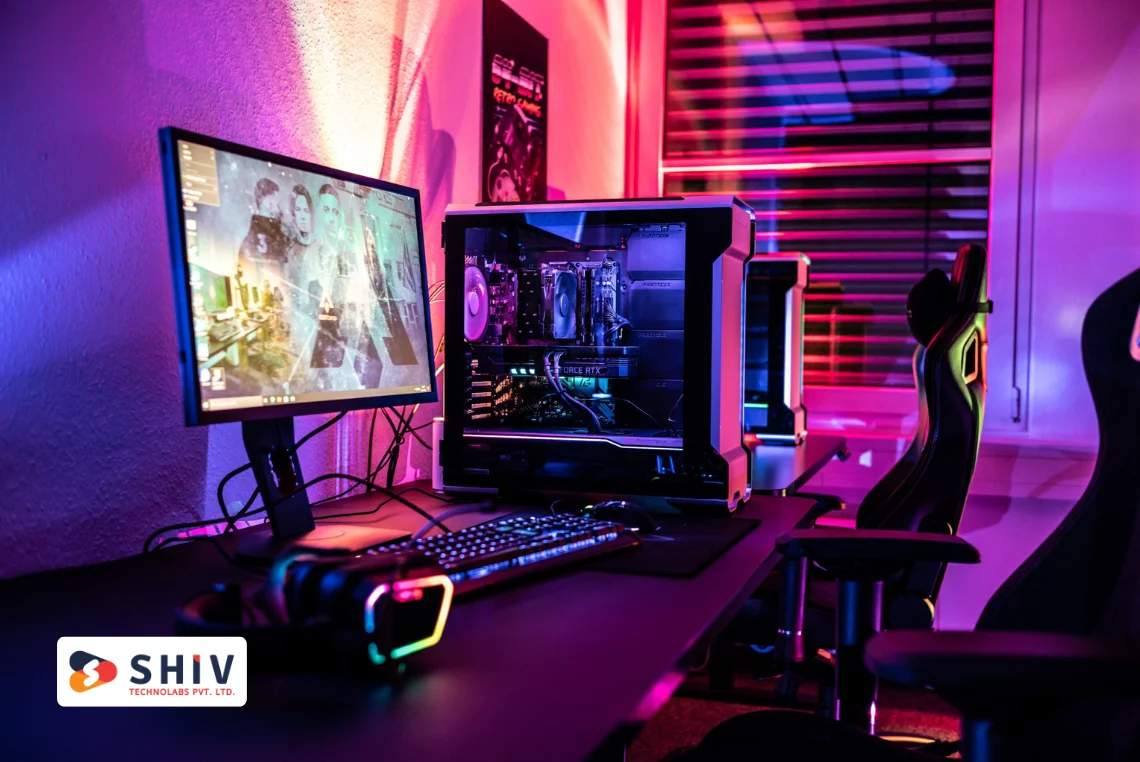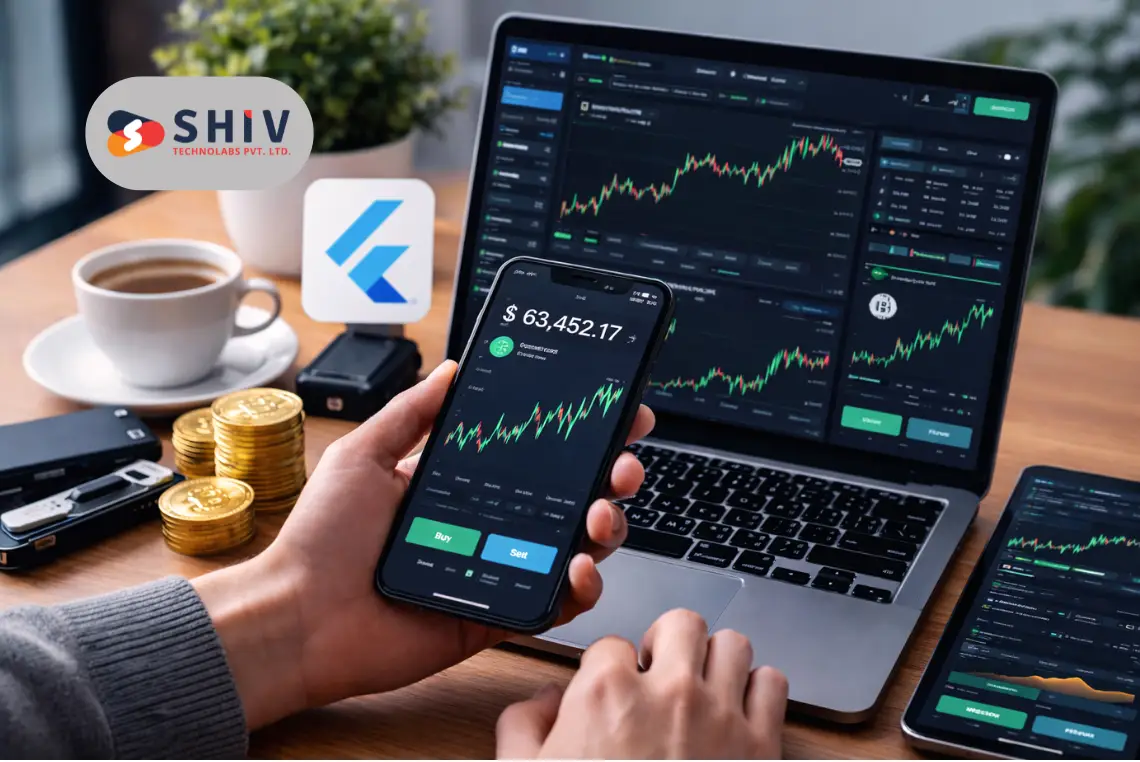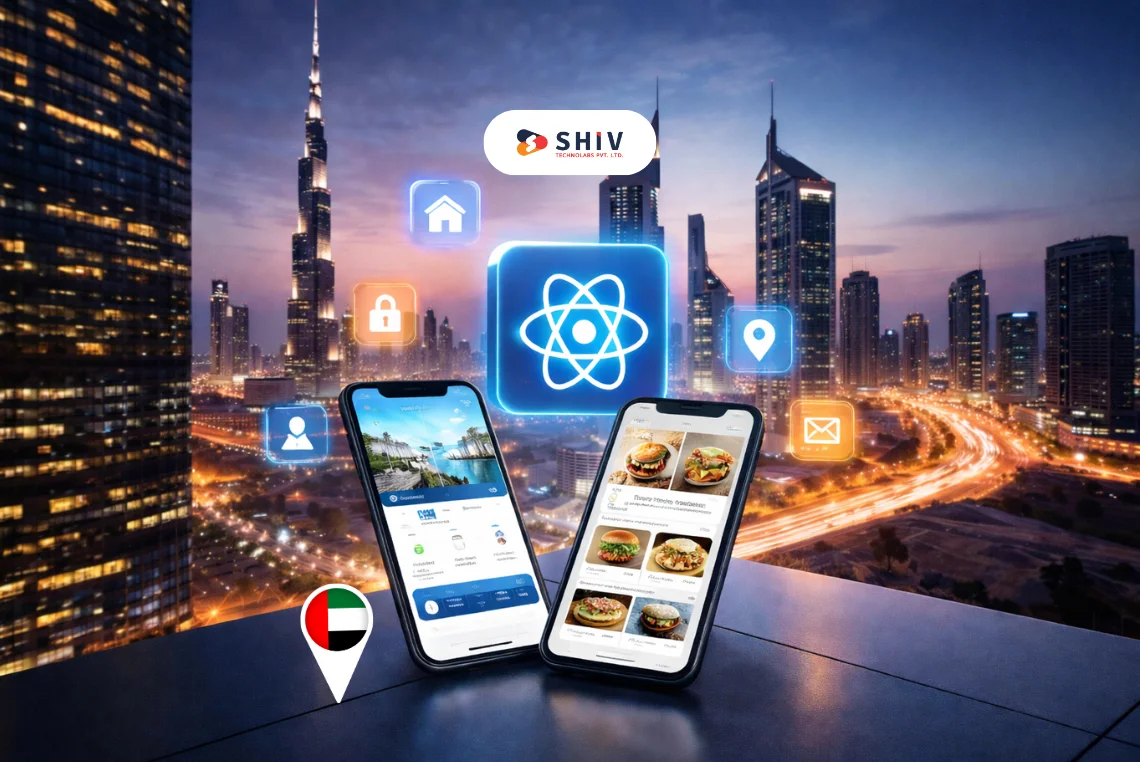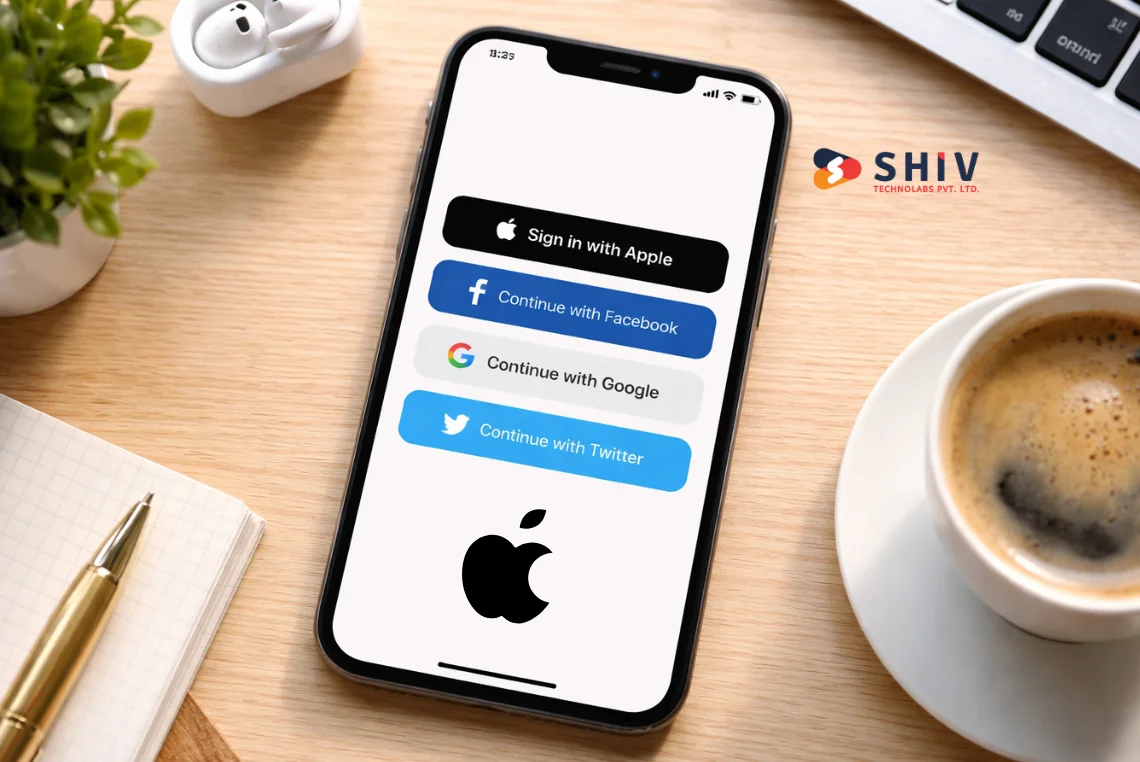Table of Contents
Gaming has evolved into one of the most dynamic industries, attracting players of all ages and backgrounds.
From quick mobile app development to immersive VR experiences, the variety of options makes it a powerful space for new businesses. Developers, publishers, and entrepreneurs are all finding creative ways to enter the industry.
According to Newzoo, global gaming revenue is expected to reach $188.8 billion in 2025, with mobile gaming contributing around $103 billion.
From indie studios designing casual titles to established developers building AAA console hits, opportunities are wide open.
But turning an idea into a successful business means choosing the right platform, focusing on essential features, and planning costs wisely.
This guide covers everything you need to know—from platforms and app types to cost breakdowns across regions.
Why Start a Gaming Business?
The gaming industry has outgrown traditional entertainment, making it a lucrative entry point for entrepreneurs.
Mobile devices, faster internet, and cloud services have expanded access to gaming across all age groups and regions.
Key reasons to start a gaming business include:
- Strong revenue growth – gaming earns more than movies and music combined.
- Large global audience – billions of active players worldwide.
- Rising eSports popularity – millions of live viewers and big sponsorship deals.
- Multiple monetization models – ads, in-app purchases, subscriptions, and virtual goods.
- New technologies – AR, VR, and cloud gaming create fresh opportunities.
Starting a gaming business means tapping into a fast-growing industry with endless innovation and consumer demand.
Gaming Platforms You Can Build For
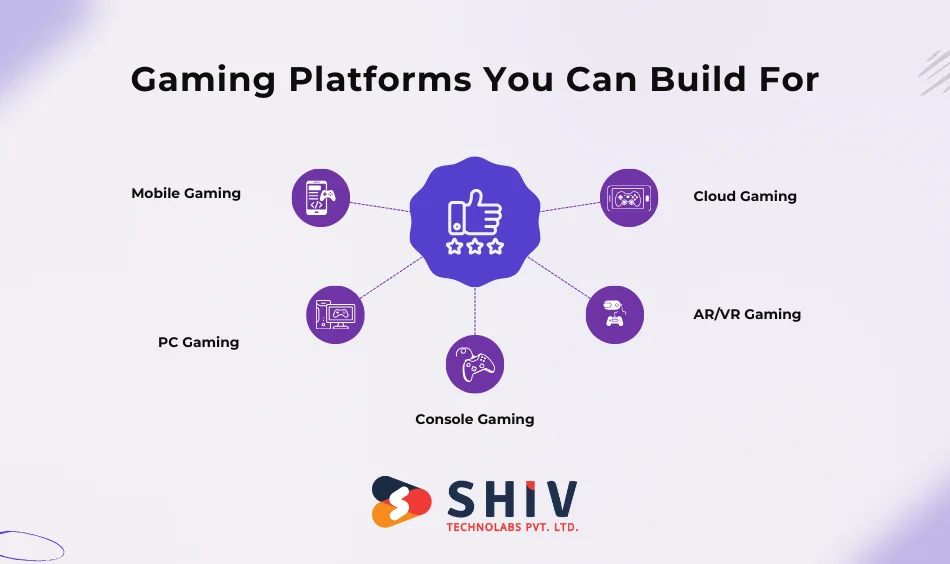
Choosing the right platform is the foundation of a successful gaming business. Each option—mobile, PC, console, cloud, or AR/VR—comes with unique audiences, development costs, and revenue opportunities.
Mobile Gaming
Mobile gaming has become the biggest revenue driver in the industry, with players spending billions yearly on in-app purchases, ads, and subscriptions. The ease of access through app stores makes it the top choice for new businesses.
Key highlights of mobile gaming:
- Massive user base – Over 3 billion people worldwide play mobile games.
- Low entry barrier – Publishing on Google Play or App Store is easier than on console or PC.
- Flexible monetization – Options include ads, freemium models, in-app purchases, and subscriptions.
- Scalability – Games can start small and grow through updates and new features.
- Cross-genre reach – From casual puzzle games to advanced multiplayer titles, mobile caters to all audiences.
PC Gaming
PC gaming remains a strong choice for both indie developers and large studios. It offers flexibility in development, diverse publishing options, and an audience that values both casual and high-end gaming experiences.
Key highlights of PC gaming:
- Diverse audience – From casual gamers to competitive players, PCs attract all types.
- Strong indie support – Platforms like Steam and Epic Games Store give visibility to small studios.
- High customization – PCs allow better graphics, mods, and feature-rich experiences compared to consoles.
- Community-driven – Modding communities and forums help games gain long-term engagement.
- Flexible monetization – Includes one-time purchases, DLCs, subscriptions, and in-game items.
Console Gaming
Console gaming continues to dominate with immersive experiences and a loyal player base. Platforms like PlayStation, Xbox, and Nintendo Switch focus on delivering high-quality games that often define industry trends.
Key highlights of console gaming:
- Dedicated audience – Players often invest in exclusive titles and long-term memberships.
- Premium quality – AAA games set high standards for graphics, storytelling, and gameplay.
- Exclusive partnerships – Developers can secure deals with Sony, Microsoft, or Nintendo for greater reach.
- Higher budgets – Console game development requires a bigger investment compared to mobile or PC.
- Brand loyalty – Fans of specific consoles stick to their ecosystem for years.
Cloud Gaming
Cloud gaming removes the need for powerful devices by letting users stream games directly over the internet. Services like Xbox Cloud, NVIDIA GeForce Now, and PlayStation Plus make high-quality gaming more accessible to a broader audience.
Key highlights of cloud gaming:
- Lower entry barrier – Players don’t need expensive PCs or consoles, just a stable connection.
- Subscription-based model – Steady recurring revenue from monthly plans.
- Global reach – Gamers can access titles across devices, from phones to smart TVs.
- Faster adoption – Ideal for regions where hardware costs limit traditional gaming growth.
- Scalability – Businesses can add or remove titles easily to match demand.
AR/VR Gaming
AR and VR are reshaping how players interact with digital content, offering immersive and interactive experiences. Devices like Meta Quest, PlayStation VR2, and Apple Vision Pro are driving demand for next-generation gaming.
Key highlights of AR/VR gaming:
- Immersive gameplay – Players feel part of the virtual environment, boosting engagement.
- Growing hardware ecosystem – Headsets and motion controllers create new opportunities for developers.
- Diverse applications – Beyond entertainment, AR/VR games connect with fitness, education, and training.
- High potential returns – Premium games and unique experiences can command higher prices.
- Innovation-driven – Businesses can stand out with creative mechanics and new interaction models.
Types of Gaming Apps You Can Build
The type of app you create defines your audience, budget, and monetization strategy. From casual mobile games to advanced multiplayer platforms, each category has unique strengths and requirements for businesses entering the gaming space.
Casual Games
Casual games are simple, easy to play, and appeal to a wide audience. They often have low development costs and quick release cycles, making them a popular entry point for startups.
Key highlights of casual games:
- Broad audience reach – Played by both young and older demographics.
- Low entry cost – Requires smaller budgets compared to complex games.
- Fast development – Can be designed and launched within months.
- Revenue opportunities – Rely on ads, freemium models, and in-app purchases.
- High replay value – Simple mechanics encourage repeated play sessions.
Multiplayer/Online Games
Multiplayer and online games create interactive experiences where players connect in real time. From battle royales to cooperative adventures, these games keep users engaged for longer and build strong communities around them.
Key highlights of multiplayer/online games:
- High engagement – Players return regularly to compete or collaborate.
- Server infrastructure – Requires strong backend systems to support real-time play.
- Social connection – In-game chat, voice, and friend lists strengthen user loyalty.
- Revenue models – Include season passes, skins, in-game items, and subscriptions.
- Competitive edge – Popular in eSports and streaming, offering extra visibility.
eSports Platforms
eSports platforms are built to support competitive gaming, from hosting tournaments to streaming live matches. They serve both players and viewers, creating opportunities for engagement, sponsorships, and long-term business growth.
Key highlights of eSports platforms:
- Large viewer base – Millions watch tournaments through Twitch, YouTube, and dedicated apps.
- Monetization options – Ads, sponsorships, premium passes, and merchandise.
- Player management – Features for team registration, ranking systems, and leaderboards.
- Event hosting – Tools to create, schedule, and manage competitions.
- Community building – Chat rooms, forums, and fan engagement features extend user interaction.
Game Marketplaces
Game marketplaces allow players to buy, sell, and trade digital assets, from full titles to in-game items. They are becoming popular with the rise of digital distribution and virtual economies.
Key highlights of game marketplaces:
- Digital distribution – Sell games directly without physical media.
- In-game assets – Support for skins, weapons, and virtual goods.
- Revenue potential – Commissions on every transaction or premium listing fees.
- Scalability – Can expand to multiple genres and platforms.
- Future-ready – NFTs and blockchain-based assets add new business models.
Game App Development Cost in USA
The USA has some of the highest development costs due to premium labor rates and advanced infrastructure. Many top gaming studios operate here, setting high standards for quality.
| Scenario | Development Cost | Ongoing Monthly Cost |
| MVP (Basic Game) | $80,000 – $120,000 | $5,000 – $8,000 |
| Mid-Level Game | $150,000 – $250,000 | $8,000 – $15,000 |
| Advanced / AAA | $300,000 – $500,000+ | $15,000 – $20,000+ |
For businesses targeting premium audiences, game app development in USA offers unmatched opportunities but requires significant investment.
Game App Development Cost in UAE
The UAE is becoming a hub for digital entertainment, backed by government initiatives and growing smartphone usage.
| Scenario | Development Cost | Ongoing Monthly Cost |
| MVP (Basic Game) | $40,000 – $70,000 | $3,000 – $6,000 |
| Mid-Level Game | $90,000 – $150,000 | $6,000 – $9,000 |
| Advanced / AAA | $180,000 – $300,000+ | $9,000 – $12,000+ |
With strong digital adoption, game app development in UAE is ideal for businesses catering to Middle Eastern players.
Game App Development Cost in Saudi Arabia
Saudi Arabia is investing heavily in gaming as part of its Vision 2030 initiative. This push makes the country a promising place for developers targeting regional users.
| Scenario | Development Cost | Ongoing Monthly Cost |
| MVP (Basic Game) | $45,000 – $75,000 | $3,500 – $6,500 |
| Mid-Level Game | $100,000 – $160,000 | $6,500 – $10,000 |
| Advanced / AAA | $190,000 – $320,000+ | $10,000 – $13,000+ |
The rising demand for localized content makes game app development in Saudi Arabia a high-potential opportunity.
Game App Development Cost in Singapore
Singapore has a strong tech ecosystem and government support for digital innovation.
| Scenario | Development Cost | Ongoing Monthly Cost |
| MVP (Basic Game) | $50,000 – $80,000 | $4,000 – $7,000 |
| Mid-Level Game | $110,000 – $170,000 | $7,000 – $11,000 |
| Advanced / AAA | $200,000 – $350,000+ | $11,000 – $14,000+ |
For premium-quality projects, game app development in Singapore offers access to skilled developers and a thriving startup culture.
Game App Development Cost in Australia
Australia is seeing steady growth in gaming, with support from government grants and creative communities.
| Scenario | Development Cost | Ongoing Monthly Cost |
| MVP (Basic Game) | $60,000 – $90,000 | $4,500 – $7,500 |
| Mid-Level Game | $120,000 – $180,000 | $7,500 – $12,000 |
| Advanced / AAA | $220,000 – $380,000+ | $12,000 – $15,000+ |
With growing player communities, game app development in Australia provides an excellent chance to reach both local and international audiences.
Game App Development Cost Comparison by Country
| Country | MVP (Basic Game) | Mid-Level Game | Advanced / AAA Game | Ongoing Monthly Cost |
| USA | $80,000 – $120,000 | $150,000 – $250,000 | $300,000 – $500,000+ | $5,000 – $20,000 |
| UAE | $40,000 – $70,000 | $90,000 – $150,000 | $180,000 – $300,000+ | $3,000 – $12,000 |
| Saudi Arabia | $45,000 – $75,000 | $100,000 – $160,000 | $190,000 – $320,000+ | $3,500 – $13,000 |
| Singapore | $50,000 – $80,000 | $110,000 – $170,000 | $200,000 – $350,000+ | $4,000 – $14,000 |
| Australia | $60,000 – $90,000 | $120,000 – $180,000 | $220,000 – $380,000+ | $4,500 – $15,000 |
These figures highlight how costs vary significantly between regions.
USA and Australia sit at the higher end due to labor rates, while UAE and Saudi Arabia offer competitive pricing with strong regional demand.
Singapore strikes a balance by offering high-quality expertise at mid-to-high costs.
Key Features of a Successful Gaming App

The success of a gaming app depends on more than just engaging gameplay. Players expect smooth performance, social features, and monetization options that keep them invested.
Adding the right features can help your app stand out in a crowded market.
Essential features include:
- Intuitive UI/UX – Clear navigation and easy controls improve player satisfaction.
- Multiplayer support – Real-time play and team modes increase engagement.
- In-game purchases – Options for skins, upgrades, and items drive revenue.
- Cloud saves – Players can continue progress across devices.
- Cross-platform sync – Connects mobile, PC, and console experiences.
- Push notifications – Keep players returning with updates and rewards.
- Advanced analytics – Helps track player behavior and improve retention.
Technology Stack for Gaming Development
Choosing the right technology stack is crucial for building a stable and scalable gaming app. The tools and frameworks you select will determine performance, graphics quality, and long-term maintenance.
Commonly used technologies include:
- Game Engines – Unity, Unreal Engine, and Godot power most modern games.
- Programming Languages – C#, C++, Java, and Python are widely adopted for game logic.
- Backend Development – Node.js, Java, or Python frameworks manage multiplayer servers and APIs.
- Databases – MongoDB, PostgreSQL, or MySQL store player data, progress, and transactions.
- Cloud Infrastructure – AWS, Azure, and Google Cloud support hosting, scaling, and security.
- Payment Gateways – Stripe, PayPal, and Razorpay handle in-app purchases globally.
Selecting the right stack depends on your target platform, game complexity, and budget.
Ongoing Costs You Must Consider
Launching a game is only the beginning. To keep players engaged and maintain smooth operations, businesses must account for ongoing expenses. These costs often influence long-term profitability more than initial development.
Key ongoing costs include:
- Game updates and patches – Regular improvements to fix bugs and release new content.
- Server hosting – Scalable infrastructure to handle multiplayer and cloud gaming.
- User acquisition – Marketing campaigns, ads, and influencer partnerships.
- Customer support – Handling player queries, complaints, and technical issues.
- Licensing and compliance – Fees for using third-party engines, music, or intellectual property.
- App store fees – Revenue share charged by Google Play and App Store.
Factoring these costs early helps businesses plan sustainable strategies for game app development.
Challenges in Starting a Gaming Business
The gaming industry offers great potential, but it also comes with significant hurdles. Many startups underestimate these challenges, which can lead to budget overruns or poor user adoption.
Common challenges include:
- High development costs – Building feature-rich games requires large investments.
- Intense competition – Thousands of games launch each year, making visibility difficult.
- Monetization struggles – Many players expect free-to-play experiences, making revenue generation tricky.
- Technical complexity – Multiplayer, AR/VR, and cloud-based games demand advanced infrastructure.
- Legal issues – Compliance with regional laws, licensing, and content ratings adds extra hurdles.
- Retention problems – Keeping players engaged after launch requires continuous updates and new content.
Addressing these challenges with careful planning can make the difference between success and failure.
Ready to Build Your Gaming App With Experts?
Starting a gaming business requires more than just a great idea—it needs the right team to bring it to life. At Shiv Technolabs, we specialize in creating gaming platforms and apps tailored to your goals.
One of our successful projects, Glownight Games, highlights our expertise in delivering engaging and scalable gaming solutions.
The platform showcases advanced features, strong performance, and a design that appeals to global players.
Why work with us?
- Skilled team with experience in entertainment app development across platforms.
- Flexible engagement models suited for startups and enterprises.
- Proven track record of delivering scalable and engaging solutions.
- Support for everything from MVP design to advanced, feature-rich games.
Whether you’re planning a mobile game, multiplayer platform, or VR experience, Shiv Technolabs can help turn your vision into reality.
Let’s Build Together
The gaming industry continues to expand with new technologies, wider audiences, and innovative business models. Success depends on choosing the right platform, planning realistic budgets, and delivering features that keep players engaged.
Shiv Technolabs helps businesses build gaming apps that stand out. From MVP design to large-scale projects, our team combines technical expertise with creative insight to deliver results.
Partnering with Shiv Technolabs can be the step that turns your gaming idea into a profitable business.

